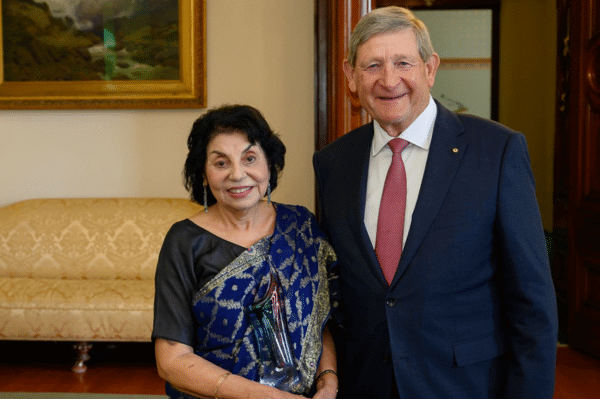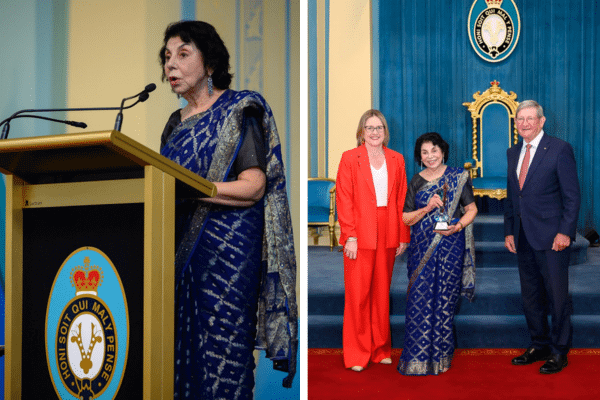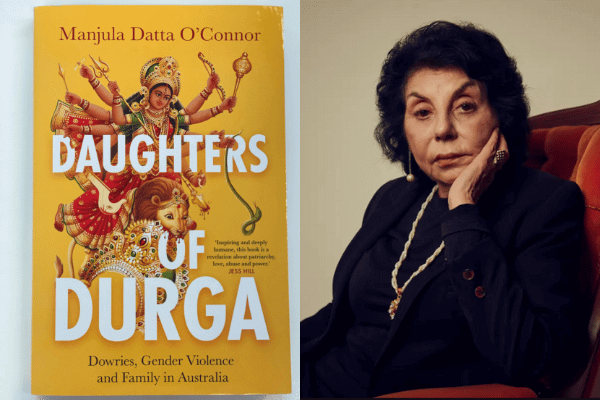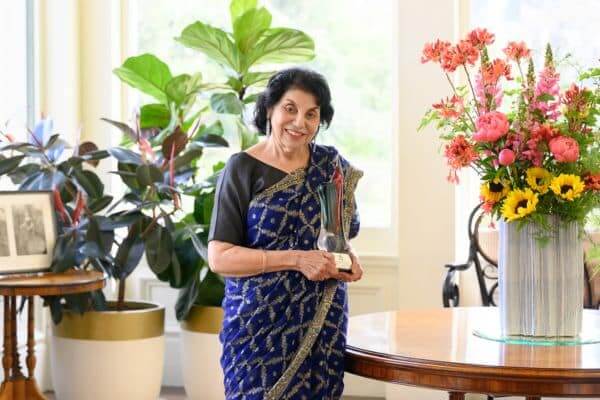Professor Manjula Datta O’Connor has received the 2024 Premier’s Award for Victorian Senior of the Year, for her work raising awareness around dowry abuse.
The Melbourne-based psychiatrist is best known for petitioning to recognise dowry abuse in Victoria’s Family Violence Protection Act 2012, amidst significant backlash from the community.
Victoria subsequently became the first state to legislate against dowry, and in 2017, her work triggered a Federal Senate Hearing into dowry abuse. In September 2024, the Federal Government’s Family Law Amendment Act 2023 recognised dowry abuse as a form of economic coercive control.
Professor O’Connor has also been inducted into the Victorian Honour Roll of Women as a Change Agent. She is happy to see recognition for her work after many attempts from opponents to end her campaign.

“It has been a 12-year [long] effort with a lot of pushback from the community,” she says. “People who were thinking that it is not a problem will now recognise that the Government thinks dowry abuse is a problem and that domestic violence is something that we should talk about and not hide – that’s what the award means to me.”
According to the Government’s factsheet, dowry abuse is ‘coercion, violence or harassment associated with the giving or receiving of dowry at any time before, during or after marriage’, and commonly involves claims that a dowry has not been satisfactorily paid and the demand for further money, gifts or service from a woman and her extended family to settle this perceived debt.
Professor O’Connor says dowry abuse can occur in both recently migrated and established South Asian, Middle Eastern and African communities, and the prevalence of such incidents is increasing for a variety of reasons.
“Last year we had over 70,000 students here, and they’re all gonna go home to get married – that’s one of the reasons why the numbers are up, because the Indian migrant numbers are [up],” she says. “The second reason is that a lot more women are talking about it [now] because they know that it will be recognised, and the third thing is the service providers know what to ask now.”

A practicing psychiatrist for 25 years, Professor Manjula Datta O’Connor was drawn to advocacy after seeing numerous clients experiencing domestic violence in the late 2000s, when international student populations boomed.
‘Women were coming to see me for extreme panic attacks, depression, extreme insomnia, fear and post-traumatic stress disorder, and when you really drill down to what is the cause, which I always do, take a very detailed family history, then domestic violence was often the reason. It was the international students who told me: you’ll be surprised how dowry abuse is so rampant in our community.” she says.
“We had a lot of murders and suicides in the Indian community between 2009 and 2015. That was the time when I felt like this was very serious. It is not going to stop, and we have to speak up, so when the media approached me, I spoke. People at the time were so angry with me for being public; they said to the newspapers, ‘it’s nothing, it’s just occasional’. And I said, no it’s not, this is an issue for our community.”
Professor O’Connor was expelled from numerous community groups for speaking out, leading to the formation of the AustralAsian Centre for Human Rights and Health in 2013, an NGO who campaign extensively against dowry abuse. She also wrote ‘Daughters of Durga’, a book investigating patriarchal abuse after a spate of domestic-violence-related deaths in Epping during the early 2010s.

Aside from bringing about law changes in Victoria and Western Australia, Professor Manjula Datta O’Connor has also advocated for visa protections for migrant brides experiencing domestic abuse, and has led numerous research projects and community initiatives against dowry abuse.
She says her next step is to work with more NGOs to drive anti-dowry law changes in the rest of Australia’s states and territories, and hopes the award from the Victorian Government will help steer the conversation.
“This recognition means that the Victorian Government has accepted that this is a serious issue. Victoria has the biggest Indian population and other migrant groups as well, and a lot of other states look to Victoria for leadership in family violence related issues, so we are hopeful that they will take it this into account,” she says.
Here are important resources if you or someone you know is in need of assistance:
- 1800 Respect National Helpline: 1800 737 732
- Lifeline (24-hour Crisis Line): 13 11 14
- Mens Referral Service: 1300 766 491
- National Domestic Violence Hotline: 1800 799 7233
- Domestic Violence Service Management (DVSM)
- Safe and Equal
- Full Stop Australia
READ ALSO: Nothing normal about domestic and family violence




